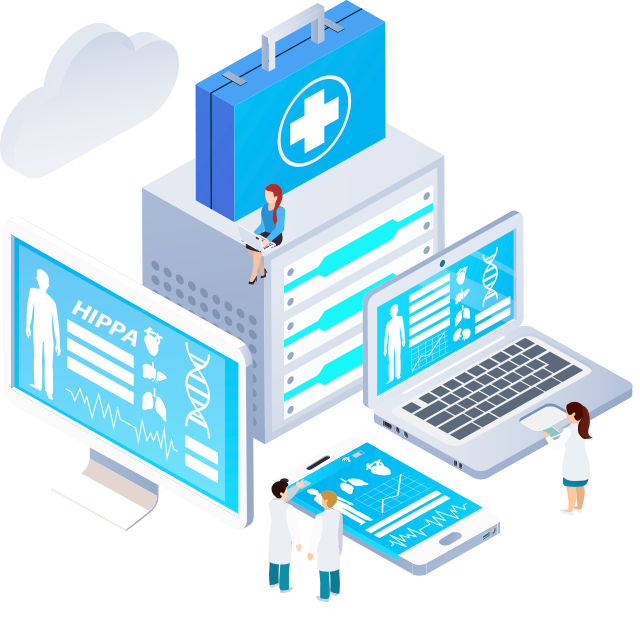
Do you know that healthcare technology trends have surged reasonably high due to the COVID19 pandemic?
This blog post will guide you in HIPAA compliant healthcare software development.
Let's learn!

Do you know that healthcare technology trends have surged reasonably high due to the COVID19 pandemic?
This blog post will guide you in HIPAA compliant healthcare software development.
Let's learn!
The Health Insurance Portability and Accountability Act of 1996, or HIPAA, outlines the lawful use and disclosure of protected health information, also known as PHI. Healthcare professionals must comply with HIPAA policies in order to protect their patients’ private information. The purpose of HIPAA is to prioritize the privacy of health records, and ensure that they remain secure and are not disclosed to unauthorized parties.
Why is HIPAA Important for your Development?
HIPAA applies to every aspect of medical practice, including any healthcare app used to store or manage patients’ data. HIPAA compliance is extremely important, as failure to protect patients’ private information can result in compromising their privacy, as well as serious legal implications for health practitioners.
The basic reason that HIPAA is important to organizations is that it represents some fundamental changes in the way that healthcare data must be approached. When it passed, the stated intent of HIPAA was to provide continuing portability and accessibility of health coverage and to stop healthcare fraud. HIPAA guidelines help to streamline administrative healthcare functions, improve efficiency in the healthcare industry, and ensure protected health information can be shared securely between healthcare providers. This is especially important to keep in mind as we move toward a more digital future.
What are the Consequences of Not Adhering to HIPAA?
The consequences of HIPAA violations can range from monetary fines to criminal charges that can result in jail time. The financial penalties for HIPAA non-compliance are based on the level of negligence and can range from $100 to $50,000 per violation (or per record), with a maximum penalty of $1.5 million per year for violations of an identical provision.
The fines and charges are broken down into two major categories: “Reasonable Cause” and “Willful Neglect.” “Reasonable Cause” fines range from $100 to $50,000 per incident and do not involve any jail time. On the other hand, “Willful Neglect” fines range from $10,000 to $50,000 for each incident and can result in criminal charges.
Downvoting a post can decrease pending rewards and make it less visible. Common reasons:
Submit
Since the pandemic, the demand for technology in healthcare has really increased. This is because many companies want to prevent unauthorized access to patient records and personal data. Therefore, it is important for any developer who starts working in this area to read the hipaa compliance checklist 2023 https://www.techmagic.co/blog/hipaa-compliance-checklist/ The TechMagic website has an extensive article on this topic. It explains what is important to pay attention to in order to ensure compliance with the requirements when creating software.
Downvoting a post can decrease pending rewards and make it less visible. Common reasons:
Submit